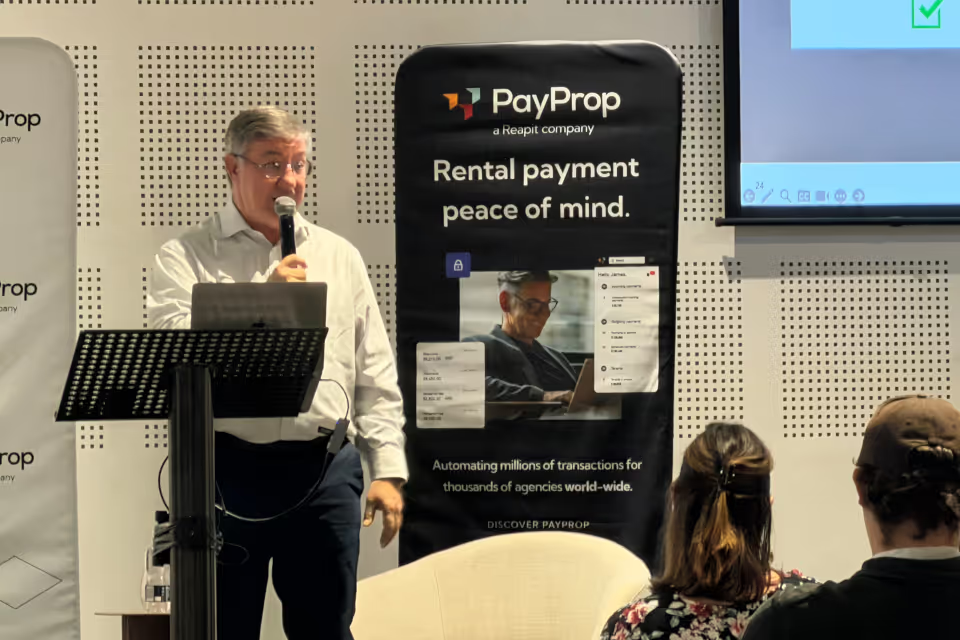Reside Summit 2025: Uniting to Solve SA’s Housing Crisis
Top Takeaways
- Johannesburg needs R60bn to close a 300,000-unit housing gap.
- Developers demand fewer delays and better service delivery.
- A unified public-private approach is the key to faster rollout
Reside Summit 2025: Public and Private Sectors align on Urgent Housing Action
The third annual Reside Summit, held on 9 July at the Sandton Convention Centre, opened with a compelling message: South Africa’s housing crisis cannot be solved in isolation. Collaboration between public and private stakeholders is not only encouraged, it is essential.
In a powerful keynote, Johannesburg Executive Mayor Dada Morero outlined the severity of the city’s housing backlog, at least 300,000 units and acknowledged that the current R8.9 billion housing budget is nowhere near enough. The city requires at least R60 billion to begin closing the gap.
“We’ve made bold statements on housing, but we’ve also been slow, fragmented, and overly bureaucratic,” Morero admitted. “This summit is our chance to reset and build real partnerships that deliver real homes.”
He committed to streamlining development approvals and cutting red tape to unlock investment opportunities, especially for affordable housing. The private sector, he stressed, must be empowered as an active partner in solving Johannesburg’s housing challenge.
Private Sector Responds: We’re Ready - But Fix the Fundamentals
Developers and housing financiers responded positively. Rob Wesselo, Group MD of International Housing Solutions, and Paul Jackson, CEO of TUHF, expressed strong support for collaboration, but with caveats.
Both stressed that inconsistent service delivery, including unreliable water, electricity, and sewage infrastructure, remains a critical barrier to investment.
They also warned of the impact of rising municipal costs:
- Property taxes in Johannesburg have increased over 45% since 2010
- Utility charges often exceed R2,000 on a R4,000 rental, compromising tenant affordability
“Investors are ready to move,” said Wesselo, “but we need a functioning service ecosystem to make projects viable and sustainable.”
Economic Outlook: A Cautious Path Ahead
Annabel Bishop, Chief Economist at Investec, offered a grounded macroeconomic outlook, projecting:
- 0.9% GDP growth in 2025
- 3.5% inflation, aiding cost control
- Gradual rate cuts, limiting access to cheaper finance
This economic backdrop poses a challenge for developers. While cost pressures may ease slightly, borrowing will remain expensive, constraining the ability to finance large-scale developments, especially for the lower-income segment.
A Unified Way Forward: Shared Risk, Shared Reward
Closing the first day of the summit, Debbie Tagg, Chairperson of the Reside Summit, captured the moment’s urgency and optimism:
“This summit is more than a conversation, it’s a catalyst. Solving South Africa’s housing crisis demands shared expertise, shared risk, and shared opportunity. It’s the only way we scale.”
Under the 2025 theme “Transforming Spaces, Enriching Lives,” participants rallied around the need for:
- Joint initiatives between city and sector
- Policy reform and regulatory overhaul
- Private capital participation, matched by public infrastructure support
The Reside Summit 2025 ended day one not just with dialogue, but with direction: a clear call for aligned, accelerated action across sectors to turn vision into delivery.














.avif)

.avif)




.svg)





























.avif)
